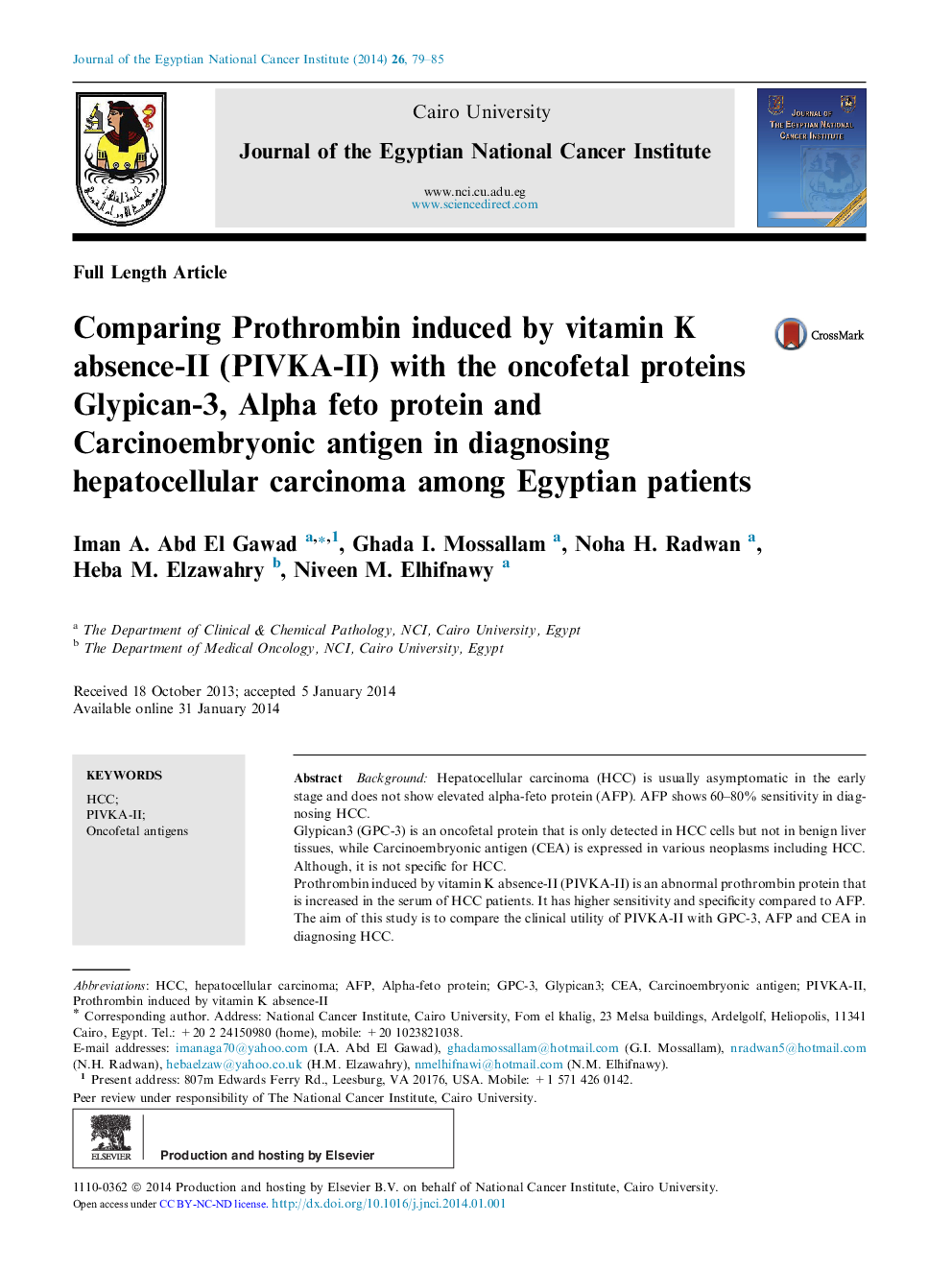| Article ID | Journal | Published Year | Pages | File Type |
|---|---|---|---|---|
| 3989071 | Journal of the Egyptian National Cancer Institute | 2014 | 7 Pages |
BackgroundHepatocellular carcinoma (HCC) is usually asymptomatic in the early stage and does not show elevated alpha-feto protein (AFP). AFP shows 60–80% sensitivity in diagnosing HCC.Glypican3 (GPC-3) is an oncofetal protein that is only detected in HCC cells but not in benign liver tissues, while Carcinoembryonic antigen (CEA) is expressed in various neoplasms including HCC. Although, it is not specific for HCC.Prothrombin induced by vitamin K absence-II (PIVKA-II) is an abnormal prothrombin protein that is increased in the serum of HCC patients. It has higher sensitivity and specificity compared to AFP.The aim of this study is to compare the clinical utility of PIVKA-II with GPC-3, AFP and CEA in diagnosing HCC.Patients and methodsThis study included 40 patients with HCC, 10 patients with cirrhosis as a benign control group, and 10 apparently healthy volunteers as normal controls.Serum samples were subjected to routine laboratory investigations, measurement of CEA, AFP using MEIA technique (Axsym), glypican3, and PIVKA-II using ELISA technique in the sera of all patients and controls.ResultsAll markers showed the highest results in the HCC group. Higher concentrations of PIVKA-II were detected in patients with splenomegaly, and in tumors with size (>3 cm). Combination of Glypican-3 and PIVKA-II showed the highest sensitivity, while GPC-3 alone and combination of GPC-3 and AFP showed the highest specificity to differentiate HCC from liver cirrhosis and normal controls. GPC-3, PIVKAII, and combination of both showed the highest sensitivity, while GPC-3 alone showed the highest specificity to differentiate HCC from liver cirrhosis.ConclusionGlypican-3 is the only oncofetal antigen that showed comparable high diagnostic accuracy as PIVKA-II in diagnosing HCC among Egyptian patients.
